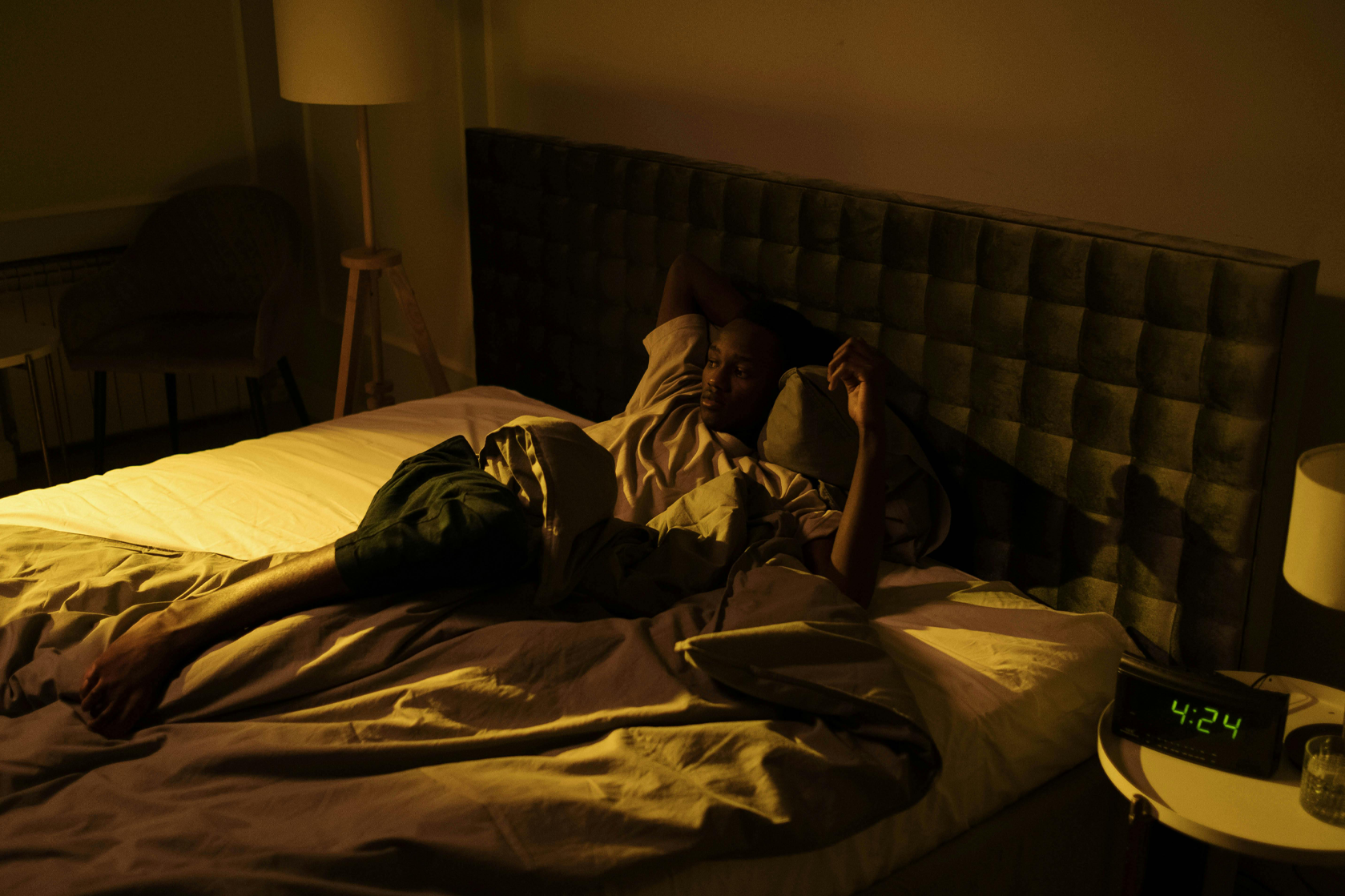
Many people with anxiety notice a striking pattern: the very time that should bring peace and restoration often brings the opposite. The day ends, the house quiets, and suddenly the mind speeds up, replaying conversations, imagining worst-case scenarios, or racing through unfinished tasks. It is a familiar experience, and if you have ever asked yourself why anxiety feels worse at night, you are far from alone.
The first reason lies in how the body regulates stress across the day. Cortisol, our primary stress hormone, naturally peaks in the morning to help us wake and then tapers down toward evening. For people prone to anxiety, however, this rhythm can be disrupted. Instead of winding down, the nervous system misreads cues and remains in high alert. Add to this the rising influence of melatonin, which prepares the body for rest, and you get a mismatch: the body seeks calm while the mind resists it, producing the sensation of being wired when you most want to sleep.
Another factor is the way daily stress accumulates. Most people spend their days managing dozens of small frustrations and tasks—emails, phone calls, traffic, interactions with coworkers or family. During the busyness of daylight, these stressors may not feel overwhelming. Yet once distractions fall away, the weight of the day surfaces. Thoughts that were quiet in the background during meetings or errands expand in the stillness of night. What felt manageable when you were busy can feel enormous when there is nothing else to focus on. The body mirrors this too. Caffeine or alcohol, skipped meals, and muscle tension collected over the day make it harder to settle down, so by bedtime both mind and body are primed for restlessness.
Psychological habits also intensify at night. People who lean toward perfectionism often find themselves reviewing the day’s performance as if on trial—what went wrong, what could have been said differently, what might others think. Others focus on the future, spinning through “what if” scenarios about the next day or the next year. In the quiet, without friends, colleagues, or even the presence of other people to provide reality checks, the inner critic becomes louder. Even darkness itself can serve as a trigger, stripping away external cues and leaving the mind to fill gaps with its own fears.
The connection between anxiety and sleep adds another layer. Anxiety disrupts sleep by making it harder to fall asleep or stay asleep. Poor sleep then worsens anxiety the next day, raising stress hormones and making the brain more reactive. Even one restless night can heighten worry, and over time this feedback loop becomes self-sustaining: anxiety fuels insomnia, and insomnia fuels anxiety. Many people blame themselves for not being able to “just relax,” but in truth a biological cycle is at work that often requires deliberate strategies to interrupt.
Breaking that cycle is possible. Creating a wind-down routine that signals to the body it is safe to rest can be powerful—dimming lights, putting away screens, and repeating calming activities each night. Offloading worries into a journal reduces the urge to mentally rehearse them. Avoiding stimulants and alcohol in the evening prevents the nervous system from staying activated long after bedtime. Relaxation techniques such as slow breathing, muscle relaxation, or guided imagery can shift the body into its parasympathetic mode, lowering heart rate and tension. And when nighttime anxiety is frequent or severe, seeking professional help matters. Evidence-based therapies, medication when appropriate, and integrative approaches that look at the whole person—not just symptoms—can make nights manageable again.
The truth is that anxiety at night is not a personal weakness. It is a predictable interaction of biology, psychology, and the accumulation of daily stress. Understanding that pattern can replace self-blame with compassion and give direction to change. With the right support and tools, evenings can become less about dread and more about restoration. At Zellig, we see anxiety as part of a broader picture of health, and our goal is always to go beyond symptoms—working with patients to understand their experiences deeply and create individualized care that restores balance. Nighttime anxiety may be common, but with care, it does not have to define your nights.



